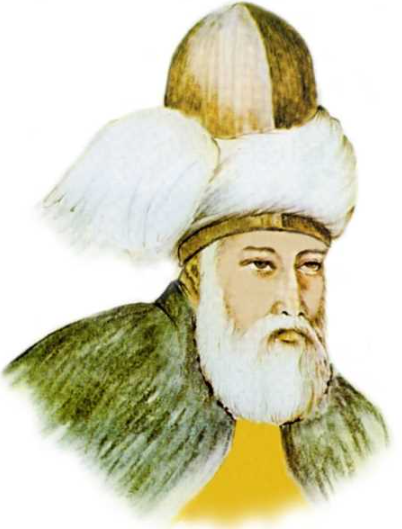
Mevlana Celaleddin Rumi remains a timeless figure whose teachings continue to inspire individuals seeking spiritual truth and connection. His poetry and philosophy encourage a journey inward, inviting people to explore the depths of love and the divine within themselves. As a testament to his enduring legacy, Rumi’s life and work continue to be studied, celebrated, and revered around the globe.
Name: Jalal ad-Din Muhammad Rumi
Born: September 30, 1207
Birthplace: Balkh, present-day Afghanistan
Died: December 17, 1273
Death Place: Konya, present-day Turkey; pls see Mevlana Museum
Occupation: Poet, Islamic scholar, theologian, Sufi mystic
Notable Works: “Masnavi,” “Diwan-e Shams-e Tabrizi,” “Fihi Ma Fih”
Content
Early Life of Mevlana
Mevlana Rumi was born into a Persian family in the city of Balkh, which was then part of the Khwarezmian Empire. His father, Bahauddin Walad, was a well-respected scholar and mystic, who had a profound influence on Rumi’s early life. Due to political instability and the threat of invasion, the family fled Balkh around 1215, traveling through various regions including Turkey and eventually settling in Konya, which was part of the Seljuk Sultanate of Rum.
Education and Influences
In Konya, Rumi continued his education in Islamic theology, philosophy, and mysticism. He studied under prominent scholars, including his father and other Sufi masters. Rumi’s early works reflect a deep understanding of Islamic teachings and Persian literature, but it was his encounter with Shams Tabrizi that profoundly transformed his life and work.
The Encounter with Shams Tabrizi
Around 1244, Mevlana met Shams Tabrizi, a wandering dervish who would become his closest friend and spiritual mentor. Their relationship was intense and transformative; Shams challenged Mevlana Rumi’s understanding of religion and spirituality. This bond inspired Rumi to express his thoughts and feelings through poetry, leading to the creation of some of his most famous works. Tragically, Shams disappeared under mysterious circumstances, which deeply affected Mevlana Rumi and fueled his poetic expressions of love, longing, and spiritual quest.
Literary Contributions of Mevlana
Rumi’s poetry is characterized by its depth and universality, transcending cultural and religious boundaries. His most significant works include:
- Masnavi: Often referred to as the “Quran in Persian,” this six-volume poem is a spiritual guide that explores themes of love, divine beauty, and the quest for God. It is filled with parables and stories that convey deep moral and ethical lessons.
- Diwan-e Shams-e Tabrizi: A collection of poems dedicated to Shams Tabrizi, expressing Rumi’s devotion and the transformative power of love. This work illustrates Rumi’s emotional and spiritual journey.
- Fihi Ma Fih: A philosophical discourse where Rumi shares his thoughts on various topics, including love, spirituality, and the nature of existence.
Legacy and Influence
Rumi’s teachings emphasize the importance of love, tolerance, and the unity of all beings. He advocated for a direct personal experience of God, often through love and devotion rather than strict adherence to religious dogma. His ideas have influenced countless individuals, transcending geographical and cultural boundaries.
After Rumi’s death in 1273, his followers established the Mevlevi Order, also known as the Whirling Dervishes, which practiced a form of Sufi meditation through dance. This tradition continues to this day and is celebrated as a form of spiritual expression.
Rumi’s works have been translated into numerous languages and are among the most-read poetry in the world. His teachings have resonated with many, making him a symbol of peace, love, and understanding in a diverse and often fragmented world.
